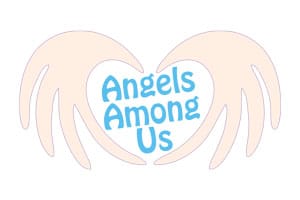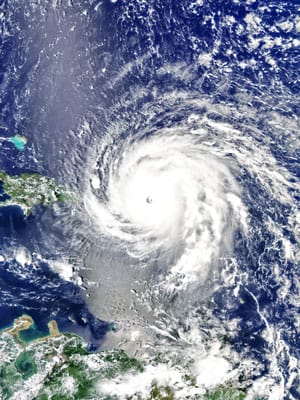Where to donate when disaster strikes
By Lynne Marsala Basche; photo courtesy of NASA


NASA satellite view of Hurricane Irma near the Virgin Islands on September 6.
Traditionally, the Angels Among Us segment features a different local nonprofit each month. With the many recent natural disasters, such as Hurricanes Harvey, Irma and Maria, as well as the wildfires in California, Montana and Oregon and the earthquakes in Mexico, The Connection is featuring national nonprofit organizations this month.
When tragedy strikes, the immediate response is to want to help in some way. It can be daunting when there are so many organizations vying for donations. If a contributor lives outside of the impacted area, the best course of action is to donate through a well-known organization. While local pop-up organizations could very well be legitimate, they may not have an established framework in place to support the people who need the help or the influx of donated funds.
Here are some reputable organizations to considering donating to in times of need:
AmeriCares (www.americares.org) offers emergency preparedness programs to help communities get ready for a disaster, respond to situations and recover from catastrophes, including providing medicine and healthcare.
American Red Cross (www.redcross.org) provides disaster relief both nationally and internationally, including shelter, services and blood donations/products.
Catholic Charities (www.catholiccharitiesusa.org) provides food, shelter, support and clothing. (All religious denominations are served.)
Salvation Army (www.salvationarmyusa.org) helps disaster survivors by gathering donations and providing resources, such as food, water, shelter and clean-up help.
Save the Children (www.savethechildren.org) provides baby supplies, including food, cribs and strollers, as well as creates “child-friendly spaces” in shelters both nationally and internationally.
The Humane Society (www.humanesociety.org) offers rescue services for animals in a natural disaster and provides animals shelter and food.
United Way (www.unitedway.org) provides essential health and human services 24 hours a day, seven days a week, as well as a recovery fund designed to support local communities in the long-term.
Blood banks are always looking for blood donations and products after disasters, too. Contact the American Red Cross or a local blood bank.
Before giving, be sure to do research to avoid being scammed. Visit Charity Navigator at www.charitynavigator.org and search for worthy organizations.
We invite readers to send suggestions for nonprofit organizations to feature. Email editor@castlepinesconnection.com. We look forward to learning more and sharing information about nonprofits in our community throughout the year.